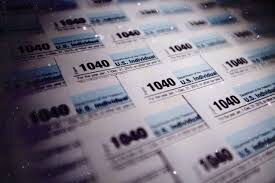
In 41 of The United States, the Richest 1% Pay Lower Tax Rates Than Everyone Else
A new study by the Institute on Taxation and Economic Policy (ITEP) has found that in 41 U.S. states, the richest one percent pay lower tax rates than everyone else. The analysis, titled “Who Pays?”, examined the tax systems of all 50 states and found that in 46 states, the top one percent is taxed at a lower rate than middle-income families. This exacerbates the nation’s inequality crisis, as lower middle-class families are forced to contribute a larger share of their incomes compared to the affluent.
The study highlights that this disparity between tax rates and public opinion on fairness exists in spite of widespread agreement that the wealthiest individuals should pay their fair share. In recent years, many states have implemented tax cuts for corporations and the wealthy, further widening the wealth gap.
Only six states, including California, Maine, Minnesota, New Jersey, New York, and Vermont, have progressive tax systems that help reduce the gap between rich and poor. Massachusetts improved its ranking in ITEP’s Tax Inequality Index by 10 spots after enacting a millionaires tax, which generated $1.5 billion in revenue last year. Minnesota has also raised taxes on the wealthy while expanding benefits for lower-income families.

The study also reveals that tax laws worsen income inequality in 44 states, making incomes more unequal after collecting state and local taxes. Florida has the most regressive tax code, with the richest one percent paying a tax rate of only 2.7 percent, while the poorest 20 percent pay 13.2 percent. This is partly due to Florida’s lack of personal income taxes, which leads to reliance on regressive consumption and property taxes.
The report identifies eight states, including Florida, Washington, Tennessee, Nevada, South Dakota, Texas, Arkansas, and Louisiana, as having the most regressive tax systems. These states heavily rely on regressive sales and excise taxes, contributing to income inequality.

ITEP’s state policy director, Aidan Davis, emphasizes that the regressive tax laws observed are a policy choice, and better options are available to lawmakers. Davis believes that there is a clear path forward for flipping upside-down tax systems and points to the progress made by a handful of states.
